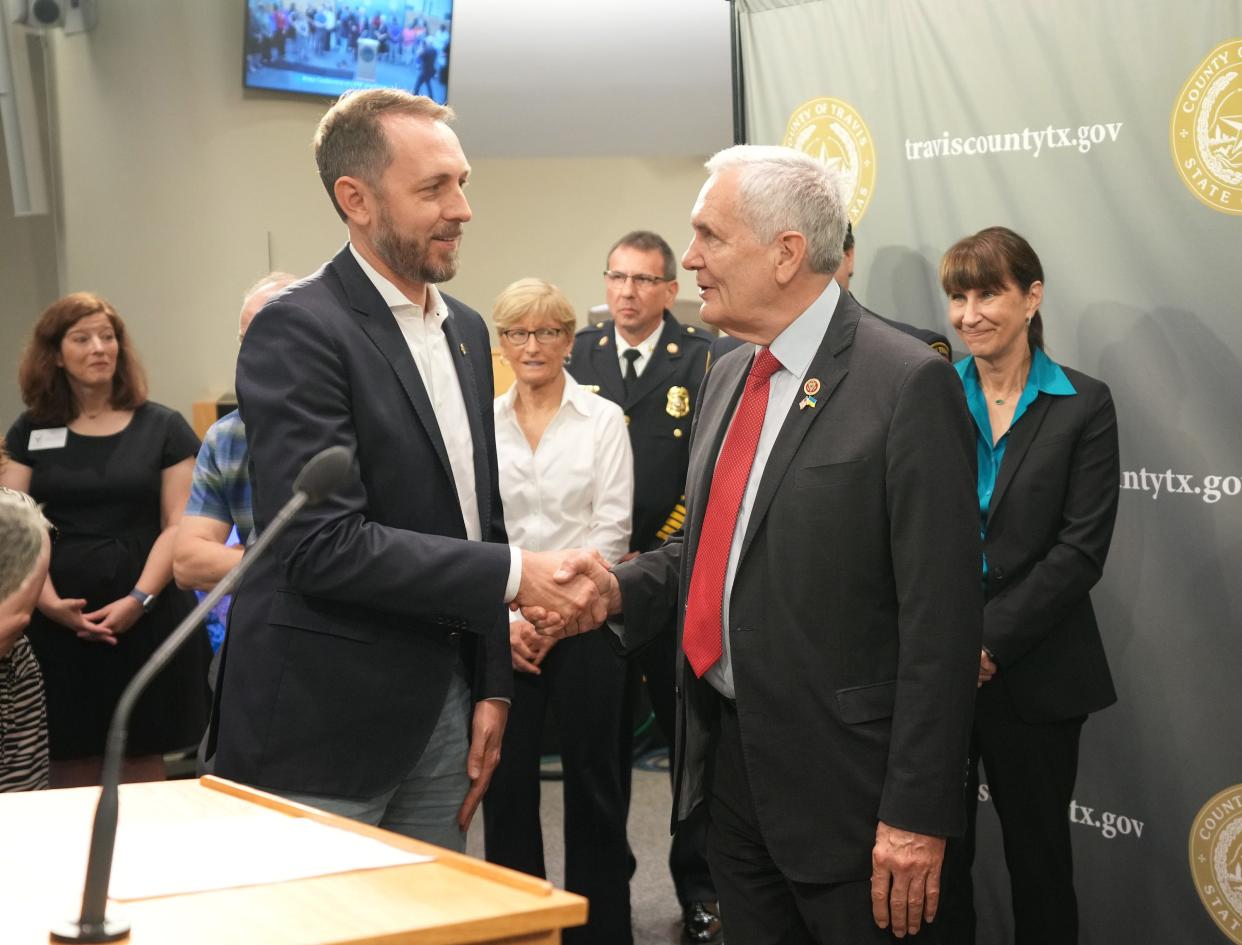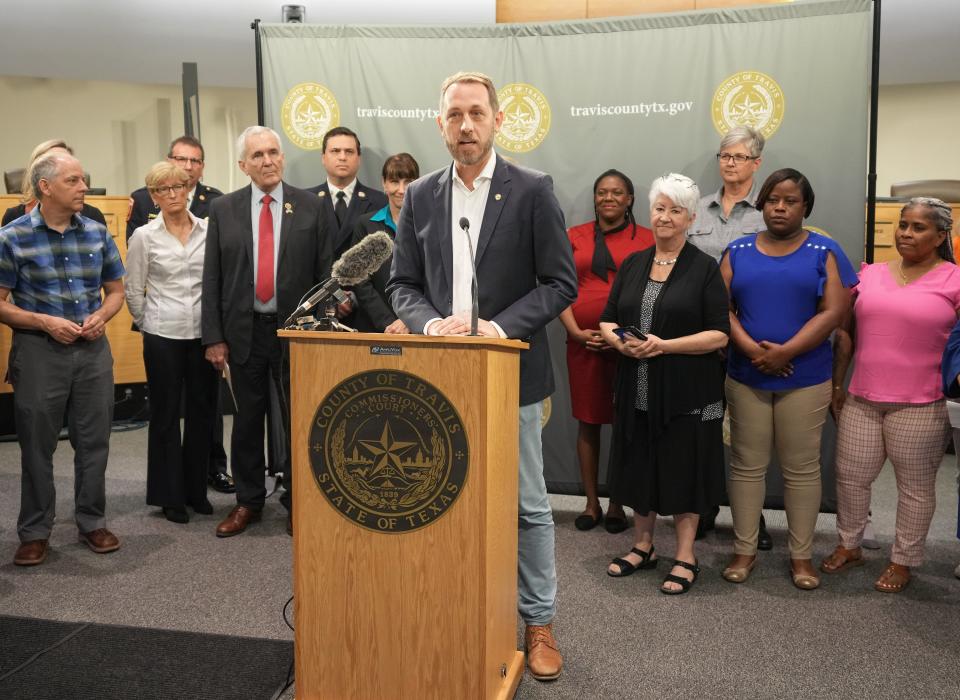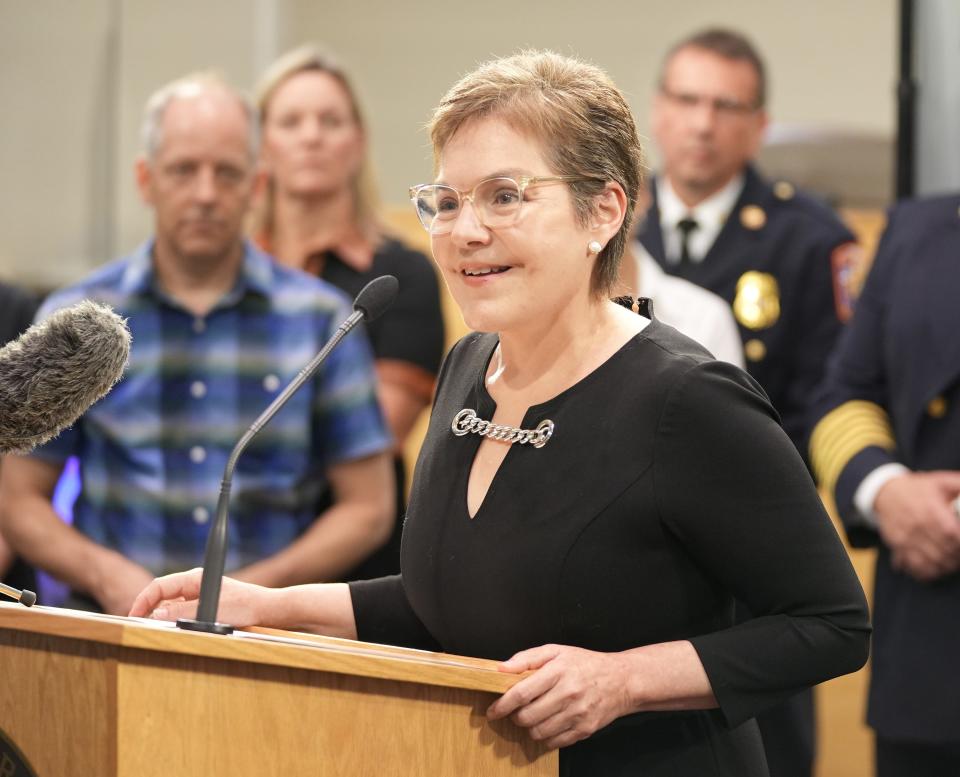Travis County plans to invest $51 million in these community services. Here's what to know

- Oops!Something went wrong.Please try again later.
Travis County allocated nearly $51 million of remaining Local Fiscal Recovery Funds to assist nonprofit organizations and other programs this week in an effort to address ongoing community needs, including food access, child care and rental assistance.
The money is part of the $247 million Travis County received in American Rescue Plan Act Funds in 2021. The county split its funding into four components that funded emergency assistance programs during the coronavirus pandemic, including relief funding and public health needs, and supportive housing projects to help solve the county’s homelessness issue.
“Thankfully with the funding we’ve received Travis County is assisting people across the county with direct federal assistance,” said County Judge Andy Brown. “I am so proud of the commissioner's court’s continued investment in the things we know will keep our community safe, stable and resilient – food, housing, child care and workforce programs.”
U.S. Rep. Lloyd Doggett, D-Austin, joined the Commissioners Court members on Monday to celebrate the use of funds for the community.
“The money includes a wide range of services,” Doggett said. “Our county is a great example of how using federal funds to invest locally in people and organization can move us forward.” Here is some of what the money funded:

Jail diversion with mental health and addiction treatment
$8 million to improve residential jail diversion programs with mental health and addiction treatment
In March, the county took its first steps in creating a diversion center that would provide shelter and support services for people experiencing a mental health crisis instead of putting them in jail.
Brown told the American-Statesman the allocated $8 million will help fund the diversion center and launch a pilot program to be used by the city and county.
More: Travis County takes first steps on mental health diversion center to keep people out of jail
Eviction Prevention
$5.3 million to eviction prevention programs
The money would be used to extend the county’s focus in this area by providing money to nonprofit El Buen Samaritano to provide emergency rental assistance support to approximately 1,200 low-income Travis County households.
El Buen Samaritano CEO Rosamaria Murillo said the group already distributed $8 million to its programs for rental assistance and other programs that connect people with health, food, education and technology services, and the additional funds will ensure that work continues into the future.

More: Austin starts pilot program to prevent housing displacement
Food Access
More than $4.3 million to provide food assistance to low-income residents
About 1 in 7 people in Central Texas faced hunger in 2021 — including 1 in 5 children — according to the Central Texas Food Bank. Several nonprofits and urban farms continue to strive to solve the inequities in food security through neighborhood farmers markets and health food meal deliveries.
The money allocated by the county will go to eight local organizations that will not only fund food pantry activities, but also help families enroll into federal food benefit programs like SNAP and local farming initiatives.
Child Care Assistance
More than $3.4 million for child care assistance programs
Money will go to strengthening the local child care system by partnering with organizations like the United Way and Workforce Solutions Capital Area, that will help fund stipends for child care providers.
Cathy McHorse, vice president of Success by 6, a part of the United Way for Greater Austin, said the area is still seeing a workforce shortage in the child care sector that is affecting hours and number of children who can access it. On average, a child care provider make about $12 to $14 an hour, and with some of these funds the hope is to help increase pay and other incentives.
More: Will new council plan make child care more accessible, affordable in Austin?
An additional $500,000 was dedicated to the Del Valle school district’s pre-K dual language program.
Laura Carlin-Gonazlez, assistant superintendent for curriculum and instruction, said the money would expand access to low-income families by providing a full day of dual language learning for pre-K students at all nine of the district’s elementary schools.
Trauma Recovery Center
About $1 million will go to establishing and funding the state’s first trauma recovery center for victims of violent crime
The funds are intended to promote healing, provide legal support and prevent involvement in further crime, Commissioner Ann Howard said.
“This funding is a game changer for the county and our partner organizations that we rely on,” Howard said. “This unprecedented funding will deliver real and meaningful results for the people of Travis County.”
This article originally appeared on Austin American-Statesman: Travis County Texas is spending remaining ARPA funds from COVID

